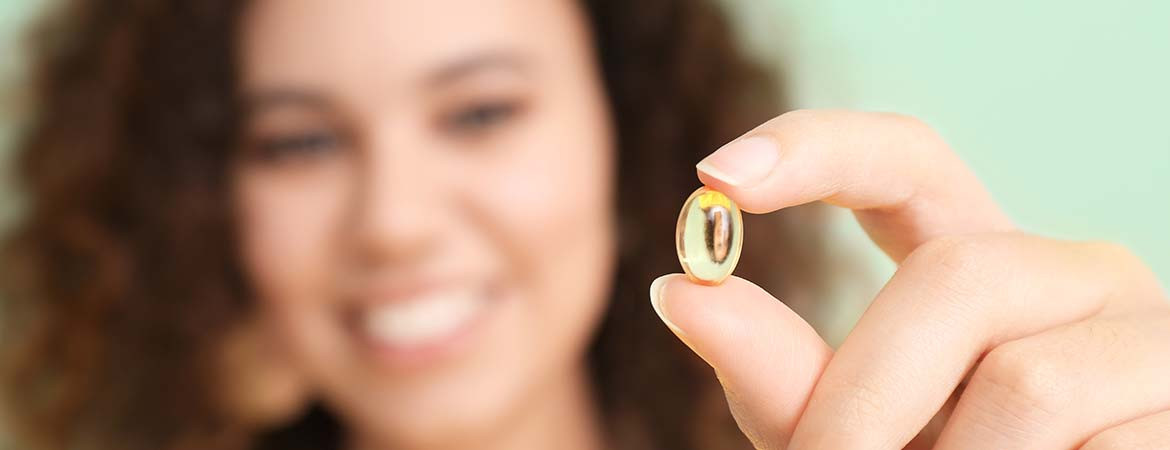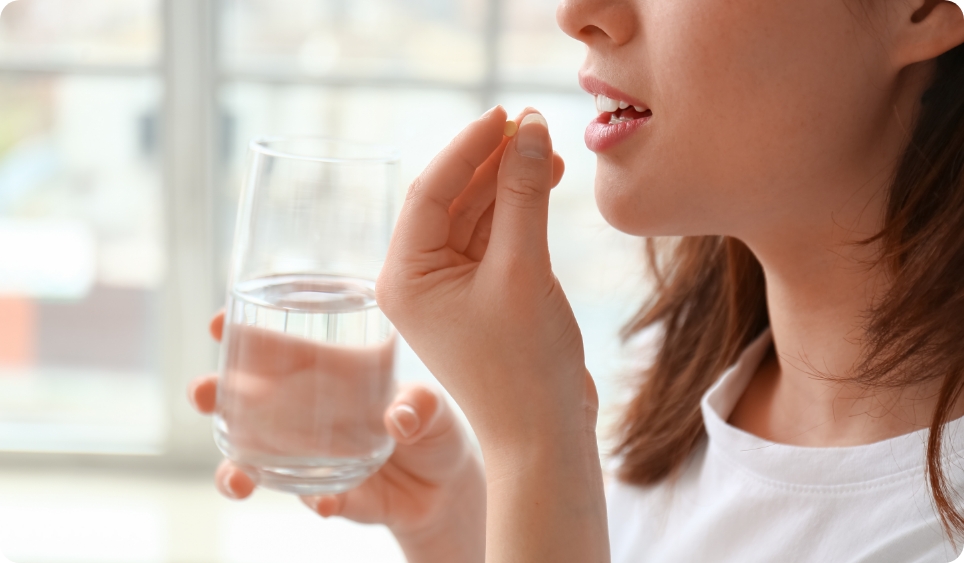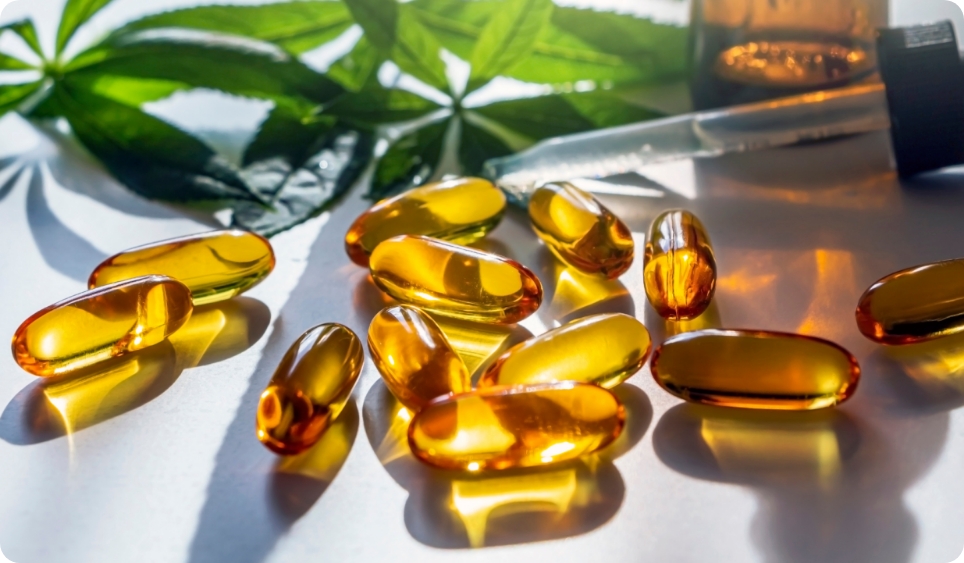- Free Shipping Over $75
- 60-Day Money-Back Guarantee
Shop Popular Products
Made from US-Grown Industrial Hemp
100% Clean Ingredients
Rigorously Tested, Quality Assured

There was a time most people drawn to hemp-derived tinctures, topicals, and softgels were most interested in the health and wellness potential of a single cannabinoid, CBD (cannabidiol). While many CBD users understood the oil extracted from the plant's stalks, stems, and flowers also has more than 100 other potentially beneficial minor cannabinoids, there was relatively little discussion of their individual contributions. Today, CBD users are also embracing some of the most intriguing minor cannabinoids in hemp extract, including the sleep-promoting potential of CBN (cannabinol) (Linares et al., 2017), the potency-enhancing properties of CBG (cannabigerol) (Anand et al., 2021), and the benefit-maximizing potential of THC (tetrahydrocannabinol) (Lee, 2019).
Although the CBD to THC ratio ensures there's no risk of intoxication, many CBD users feel they get their best results by taking advantage of the naturally occurring delta 9 THC in full spectrum hemp-derived products. If you've been wondering how you might benefit from adding a small amount of THC to your daily routine, consider microdosing with CBDistillery® Full Spectrum CBD Softgels or our 2500mg Full Spectrum CBD Oil Tincture.

Most hemp-derived CBD products have similar serving-size suggestions printed on their labels, an amount that works well for most people. But every person is unique. An amount of CBD, THC, or any other cannabinoid that might be terrific for one person could be significantly more or considerably less than the amount that delivers the best results for someone else. For anyone interested in identifying their ideal serving size, the smallest amount necessary to achieve the impact they're looking for, microdosing is considered one of the best methods available. It's a technique borrowed from medicinal and recreational marijuana users interested in minimizing the intoxicating effects of their THC-dominant cannabis strains (Lehmert et al., 2021).
Although many CBD users still consider THC primarily "recreational," decades of research suggest considerable health and wellness potential. Like CBD, THC interacts with the receptors of the largest regulatory system in your body, your endocannabinoid system (ECS) receptors. Its molecular structure allows the cannabinoid to bind with a specific ECS receptor in your brain, CB1. CBD interacts with the same receptor but does not bind. Instead, it works indirectly through several molecular targets (Alger, 2013). Many cannabis researchers believe CBD and THC work even better together because of their individual contributions to an "entourage" effect (Nahler et al., 2019). Although adults of all ages claim impressive results microdosing CBD, many CBD users also use full spectrum CBD products for microdosing THC.
Microdosing THC allows you to determine how much you need to ensure you're not getting too little or too much. Although hemp-derived cannabinoids like CBD and THC are generally well tolerated and considered safe for most people, overconsumption can cause a dry mouth, stomach upset, diarrhea, fatigue, or sleepiness (Grotenhermen & Muller-Vahl, 2017). The 20:1 CBD to THC ratio of full spectrum hemp extract gives you all the health and wellness potential the combination has to offer, without the risk of intoxication you might get from a cannabis product with the same amount of THC, but less CBD.

The best way to microdose THC is to start low and proceed slowly. Although our full spectrum hemp-derived products contain less than 0.3% THC (by dry weight), an exceptionally small amount compared to their CBD concentrations, those milligrams add up. CBDistillery® Full Spectrum CBD Softgels and our 2500mg Full Spectrum CBD Oil Tincture contain 1-2.5mg THC per serving.
If you prefer the convenience of microdosing with CBDistillery® Full Spectrum CBD Softgels, start with one. If you don't get the results you're hoping for within a week or so, add a second serving later in the day. If after giving your system time to respond to that second serving, you feel you might benefit from a third increase for relaxation, better sleep, or relief after physical activity, add a second softgel to your AM and PM servings (over time). Since most CBD users participating in our internal survey report achieving their best results within 7-14 days of consistent use, giving your body time to adapt and respond between increases could help you determine the lowest number of softgels you'll need to keep the combined effects of their CBD and THC going strong.
Microdosing with a hemp-derived tincture is a bit more involved but far more precise. In our 2500mg Full Spectrum CBD Oil Tincture, there's about 2.5mg THC per 1ml dropper. The key to microdosing with a high-potency tincture is to start with a single drop, and work from there, one drop at a time. If you don't notice any difference in the way you feel after 45 minutes of your first (1 drop) serving, increase to two drops in your second hour, use three drops in your third hour, and so on. If you aren't getting the results you're hoping for during your first day of microdosing, pick up where you left off on day two. Once you get the relief you need, add the total number of drops you've taken in the past four hours. Then, stick with that serving size and keep using your tincture two to three times per day (every 4-6 hours). But before you begin microdosing, consider the following suggestions.
Microdosing helps you determine the amount of THC (and CBD) that's right for you. Although The CBD to THC ratio of our hemp-derived extract keeps our full spectrum products from causing intoxication, trying to rush the process can skew your results. If you're currently using relatively large servings of broad spectrum CBD or a product made with 0% THC isolate, consider waiting 48 hours after your last serving to ensure your experience with THC isn't affected by the hemp-derived cannabinoids already circulating in your system.
Before you begin microdosing, consider making a list of the possible benefits of using full spectrum hemp-derived products you're hoping to achieve. Then, keep a detailed log documenting the number of drops you're using each hour and any changes you might notice along the way. Your notes can be as brief or as detailed as you choose. Once you've achieved the results you're hoping for, tracking your progress makes it easy to tally your ideal serving size or backtrack if you develop unpleasant side effects.
Begin tracking your intake on a day you won't be using any substances that could alter the way you feel. For example, you don't want to start microdosing when you plan on celebrating with alcohol, need to use prescription or over-the-counter medications, or will also be using THC-dominant cannabis. If you have a medical condition or take medication, consult your physician before microdosing THC. CBD, THC, and other hemp-derived cannabinoids can interact with several commonly used medications (Antoniou et al., 2020).
If you're intrigued by some of the many potential benefits of adding THC to your daily routine but don't want to feel intoxicated, visit CBDistillery® to view our selection of full spectrum CBD tinctures, softgels, and gummies. Our full spectrum products with 30 - 83mg of CBD per serving also have 1-2.5 mg of naturally occurring delta 9 THC. Combining the effects of CBD with a small amount of THC could be just what you need for better sleep, relaxation, or pain, stiffness, and inflammation after physical activity. Once you've selected a product, consider microdosing to find your ideal serving size. For rest, relaxation, and a mild buzz, try our Unwind Synergy+ THC & CBD Gummies. You can shop with confidence knowing every CBDA, CBD, CBN, CBG, and hemp-derived THC product we offer is third-party tested and produced in a GMP registered facility.
References
Alger B, Ph.D. (2013) Getting High on the Endocannabinoid System. 14, Cerebrum. https://www.ncbi.nlm.nih.gov/pmc/articles/PMC3997295/
Anand U, Oldfield C, et al. (2021) Dose-Related Inhibition of Capsaicin Responses by Cannabinoids CBG, CBD, THC, and their Combination in Cultured Sensory Neurons. 14, J Pain Res 3603-14. https://doi.org/10.2147/JPR.S336773
Antoniou T, Bodkin J, et al. (2020) Drug Interactions with Cannabinoids. 192(9) CMAJ E206. https://doi.org/10.1503/cmaj.191097
Grotenhermen F, Muller-Vahl K. (2017) Medical Uses of Marijuana and Cannabinoids. 35(5) Crit Rev in Plant Sci 1-27. https://doi.org/10.1080/07352689.2016.1265360
Lee M. (2019) CBD & THC: Myths and Misconceptions. Project CBD.
Lehmert K, Ambrozova E, et al. (2021) Microdosing of Psychoactive Substances in Business Practice. 1(3) Businesses 2021 196-204. https://doi.org/10.3390/businesses1030014
Linares I, Crippa J, et al. (2017) Chapter 91 – Beneficial Effects of Cannabis and Related Compounds on Sleep. Handbook of Cannabis and Related Pathologies 877-882. https://doi.org/10.1016/B978-0-12-800756-3.00106-X.
Nahler G, Jones T, et al. (2019) Cannabidiol and Contribution of Major Hemp Phytocompounds to the "Entourage" Effect: Possible Mechanisms. 5, J Altern Complement Integr Med 70. PDF Download.